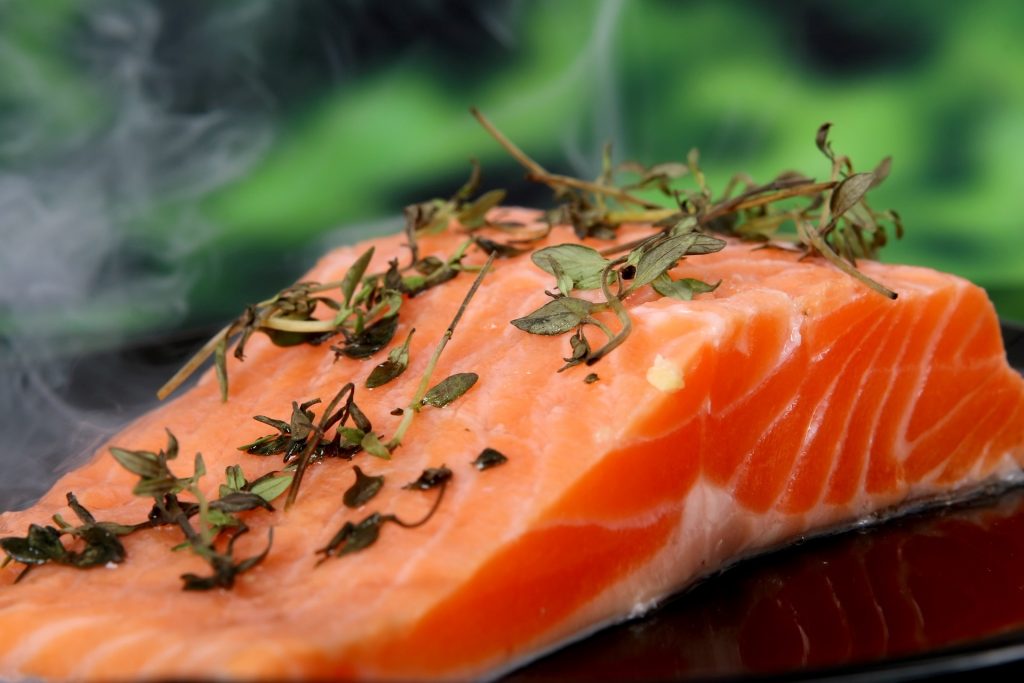
Could the low-carb, high-fat, diet known as the Ketogenic or Keto Diet, help in the treatment of gout? This recent study seems to point that way. But all is not as it seems.
Ketogenic Diet and Gout
A recent study by researchers at the Yale School of Medicine in New Haven, CT, and published in Cell Reports, suggests that a ketogenic (keto) diet could help to relieve the symptoms of gout.
A ketogenic diet is one that encourages the body to utilize fat and ketones (produced in the liver by metabolizing fat) for fuel, rather than sugar-based fuels. In essence, it’s a strict very low carb, high fat, restricted protein diet and should not be confused with other low-carb diets such as the Atkins Diet.
A true ketogenic diet puts the body into a state such that there’s insufficient glucose being produced to provide the energy the body needs. The outcome is that the body switches into a state where molecules called ‘ketones’ are generated, which are then used for energy.
The study found that one of these ketones — the beta-hydroxybutyrate (BHB) — may alleviate urate crystal-induced gout.
I came across this rather good summary of the study in Medical News Today...
“The research team developed a new model of gout flares in rodents.
As the researchers explain, these flares are triggered by the NLRP3 inflammasome. With the help of neutrophils – the most common type of white blood cell – NLRP3 activates the IL-1B pro-inflammatory cytokine, leading to episodes of intense pain, fever, and the destruction of joints.
In the rodent model, researchers induced gout by injecting 1.25 milligrams of monosodium urate into rats’ knees. Researchers measured knee thickness and performed pathology analyses on the rats’ ligaments and menisci.
The rodents were kept in pathogen-free conditions and fed a ketogenic diet 1 week before starting the experiments. Scientists measured the levels of BHB in the rodents’ blood.
The scientists also examined human subjects. They recruited healthy, steroid-free adults aged between 18 and 45, as well as older adults aged 65 and over. Participants were not fasting when their peripheral blood was collected.
Dixit and colleagues also conducted statistical analyses and performed all of the experiments at least twice.
The team found that a ketogenic diet raised BHB levels, which in turn inhibited the NLRP3 inflammasome. As a consequence, the symptoms of urate crystal-induced gout were alleviated, without negatively impacting the immune system or its ability to defend against bacterial infections.
Additionally, BHB blocked IL-1B in the neutrophils of both mice and humans, regardless of age. Dixit and colleagues conclude that:
“Collectively, our studies show that BHB, a known alternate metabolic fuel, is also an anti-inflammatory molecule that may serve as a treatment for gout.”
Emily Goldberg, co-author on the study, associate research scientist, and clinical veterinarian in comparative medicine, explains the findings:
“In isolated neutrophils, [BHB] completely blocked NLRP3 inflammasome activation, even when provided at low concentrations that are physiologically achievable through dietary modification.”
She also suggests that targeting the NLRP3 inflammasome to reduce inflammation during a flare may improve the gout patients’ symptoms. However, she admits that more studies are needed to test this possibility.”
And here’s a very interesting video by Dr. Axe on the ketogenic diet…
So, can the ketogenic diet really help your gout?
It has to be pointed out that, whilst BHB may be able to alleviate the symptoms of a gout attack, it can’t prevent urate crystal formation, the precursor of an inflammatory gout attack. In other words, it can’t actually prevent an attack, it can only reduce its severity, IMHO.
Another thing to watch out for is that a ketogenic diet is usually rich in fish and shellfish (for their fats and oil) much of which is high in purine — a natural chemical compound in our bodies and in our food — which metabolizes into uric acid.
Abnormally high uric acid in the body (a condition called hyperuricemia) can result in urate crystals being formed out of the acid and collecting in joints and associated tissue, triggering a gout attack.
So gout patients are normally advised to stick to a low purine diet which means restricting and even completely avoiding some types of fish and shellfish that can markedly increase uric acid and so your risk of gout attacks.
My personal view is that the Keto diet is just too much of a risk for gout sufferers and should be avoided.



